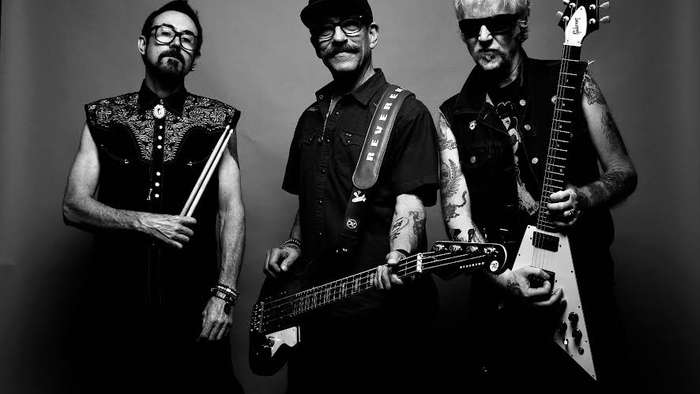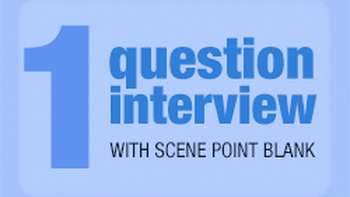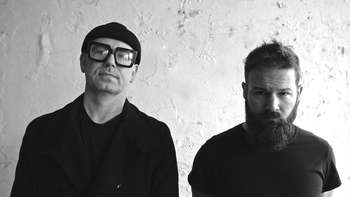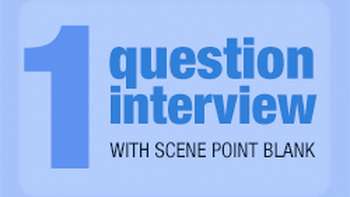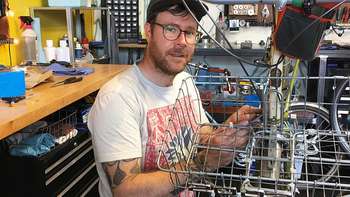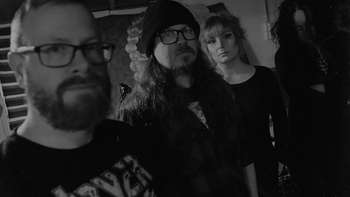Scene Point Blank: I have to ask this… Did you watch the series The Bear and did you find it accurate!?
Greg Norton: Oh yes, I love The Bear! It is probably the most accurate show involving a restaurant there ever was. The episode where the cousin Jimmy goes to a very high-end restaurant and they make him polish silverware? Well that shit is real! I know people in the industry who can't watch it as they get PTSD. I am looking forward to future seasons as it is a well made show.
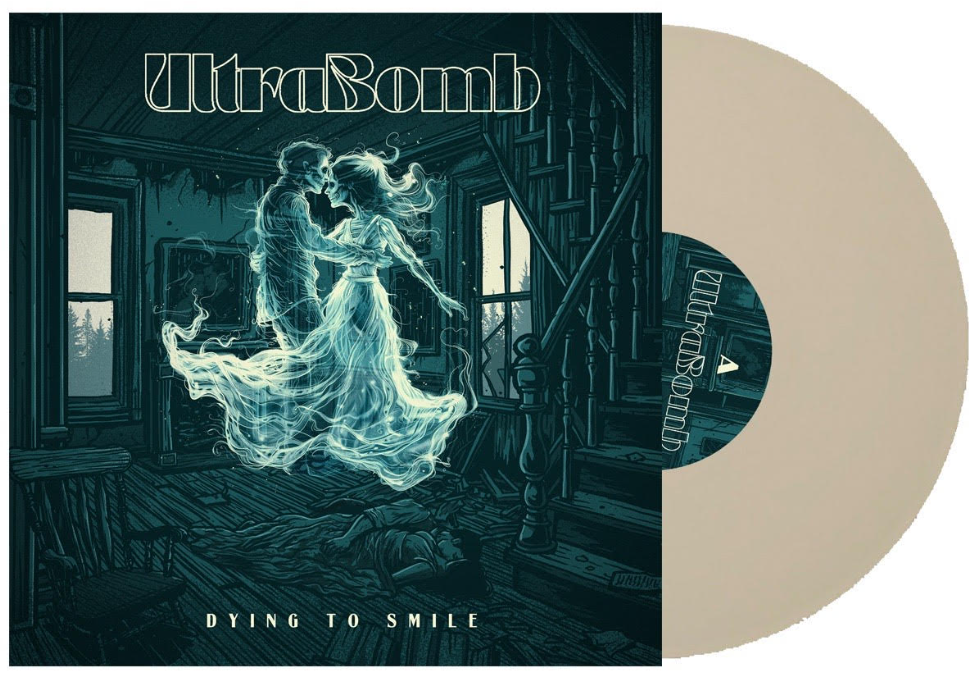
Scene Point Blank: When I was 18 I explored becoming a chef and going to college for it. I met with a family friend who was a chef and he told me I would not have a social life for about 10 years. That was the end of my career that never began!
Greg Norton: Yeah, that's not that inaccurate. It can be devastating to relationships; then again, being a full-time musician can as well if you're in a situation where they don't understand that you need to spend this time out on the road and be away from your family. So if you're going to pursue that, it's best to be with someone who is going to fully support you in what you're doing.
Scene Point Blank: So back to Ultrabomb! Are you going to keep up the momentum and record more?
Greg Norton: Finney already has a bunch of riffs and music for the new record. I have enough lyrics for a new release as well. I am hoping before the end of the year or early next we can get back into the studio. I think we will record this one in the US.
Scene Point Blank: Once that happens you are back to posting on social media and keeping up with the algorithms. It is like using LinkedIn when you are looking for a job. You have to keep your name at the top of the pile and keep posting and making connections.
Greg Norton: Yes, that is the nature of how things are now. Everything is spread across social media and those platforms are driven by algorithms. It is almost a job in itself. You need to factor in how often you post, and the quality of those posts and you cannot be posting the same thing over and over as that will just bump you down to the bottom of the list. Somehow you need to get the public to like your posts and if they comment you need to respond. You need to feed the algorithm monster! Yes, and I agree it is similar to Linkedin, Spotify, Facebook, Instagram, X, YouTube and any others that I might be missing!
Interestingly enough, Bands in Town just have redone their whole platform where you can follow not only bands that you like but you can also follow venues and when shows are coming to your area. They have links so you can book a hotel and links to the Waze app to get directions to the venue. Bands in Town are probably going to become bigger players. Bands can have merch links on their page and put up photos and videos, and fans can also post their photos and comments. You should check it out and see what other people are gravitating to. So again, just to stay relevant.
Scene Point Blank: I recently went to see The Damned and I used elements of what you just spoke about. However it would be nice if it was all rolled up in one neat little package…but I have to tell you ticket prices are nuts these days!
Greg Norton: That is something that needs to be addressed as well as those hidden fees. Pearl Jam tried to warn everyone back in the ‘90s.
Currently, in the US, I know that Congress is actually looking at breaking up Live Nation and Ticketmaster because Live Nation is such a huge player and they own Ticketmaster. You know, they're making a hell of a lot of money off of everybody.
Ticketmaster, they're doing these things like, “Hey we're gonna have a little sale and you can jump online on this day and you can buy any ticket for $25.00.” So I think they're trying to make amends and be like, “Oh, no, no, we're not greedy, we're not gouging people -- look we're even offering people great deals.” Live Nation has a program for the artist called On The Road Again where they state we're not going to take any percentage of merch sales from artists anymore. Which is ridiculous in the first place, So, I show up with my band and you are basically just giving me a table in the corner and then at the end of the night some guys come up asking what you sold and demanding their cut. So they're doing away with that. Bands that come through Live Nation venues are getting gas cards to help them on the road. So all of a sudden they're trying to do the right thing and help artists to survive on the road, which is great. It took one of those things where, all of a sudden, everybody was like, “You guys are a bunch of greedy fuckers and we are going to look at antitrust laws to fix this.” Suddenly they're like, “Hey, wait a second. Actually, no, you don't have to do that as we're all for the artists and this is what we're going to do for musicians.” I think they understand how much money they're making off of the bands. But at the same time, they realize that without the bands then they have nothing.
So, yeah, it kind of gets back to what I was talking about with Spotify earlier. They need to figure out how to pay the bands so that musicians and artists can earn a living so that they can keep creating music and content.
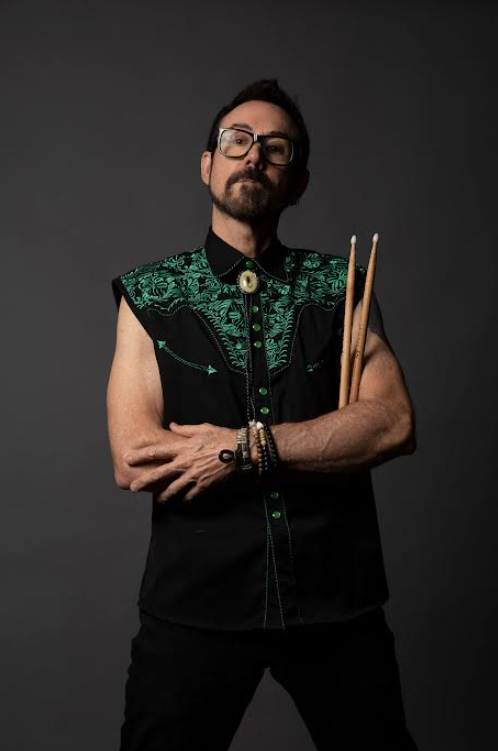
Scene Point Blank: I heard that in a lot of the bigger stadium shows the musicians are questioning why nobody is showing up and why are they not selling these venues out. There was a recent show where they took all the people from the cheaper seats and put them down in the expensive seats because they wanted the band to think that they sold more tickets than they did, I guess. So I think there's a backlash happening. Who can afford $800 Metallica tickets, for example? Dynamic ticket pricing just doesn't sound right in the live music forum.
Greg Norton: The Black Keys just cancelled their whole arena tour in the US and part of that was because the cheapest seat was $300 or something ridiculous. So there again, on certain promoters' parts, I believe that there's a little bit of greed and gouge going on and they're starting to realize that this is not sustainable and we need to rework it so that people can afford to go see these shows.
Scene Point Blank: I am glad there is a backlash happening. I have seen plenty of bands in my lifetime but it has become an elitist event. Would the people instead of clapping just tinkle your jewelry instead? [Laughs.]
Greg Norton: Yep, exactly. Add in parking and, if you are travelling, there's a hotel room and you have to eat -- and then you know what they charge for concessions and beer prices is ridiculous -- and all of a sudden you're looking at, like, OK, I wanted to go see this show but it's going to cost me $1000 for two people to go.
Scene Point Blank: Do you have much insight into international artist visa fees going up 250 percent to play in the US?
Greg Norton: Finny could probably talk more about that as he is a Canadian travelling to the US. For me to go into Canada, I just need to clear up my DUI situation with the temporary resident permit, in which case I can cross the border. Like I said, with a legitimate reason to work, performing artists don't need a work visa to work in Canada. It was different for Hüsker Dü in the ‘80s. For us to play in Canada, we had to apply for work. We could just pick up the work visa at the border and it listed a specific number of dates and you couldn't do anything outside of those dates, so that's changed.
Scene Point Blank: Are you still playing in The Gang Font feat. Interloper?
Greg Norton: Yes. We recorded a second record in 2010, which has not been released yet and we keep talking about trying to get somebody to put it out. We managed to play at least one gig a year up until about maybe five years ago. So, we haven't played in about 5 years. Dave King and I are going to get together and hopefully talk about how we get this record out and when are we gonna play again. Bryan Nichols and Eric Fratzke are also very busy with other musical projects. So it's just kind of a matter of having the right window to get us all together.
We have described our sound as punk prog, free funk math metal!
Scene Point Blank:I have a friend who's a jazz musician and draws comparisons to punk. His analogy is that the same energy that is behind punk exists in jazz.
Greg Norton: Our first record came out on a label out of New York called Thirsty Ear. When Thirsty Ear first started, they put out some punk records but quickly became more of a jazz label. When our record came out it also became apparent that Gang Font was too rock for the jazz guys and it was too out there for the rock guys. So it's not necessarily an easy band to get people on board with but, certainly, as a project that I love playing in.
Scene Point Blank: Those are usually the best bands that defy categorization and people catch up with them like 40 years later.
Who were your musical bass heroes?
Greg Norton: When I was a young teenager, I was certainly influenced by Paul McCartney but I also quickly got into progressive rock and listened to Chris Squire a lot from the band Yes and Entwistle from The Who. When I was 14, I started hanging out at a record store and got turned on to Stanley Clarke, the jazz bassist, and Larry Graham from Graham Central Station. So,I've got a lot of bass heroes from back in the day, but it's a pretty broad stroke. It's not like there is one particular style and then once Hüsker started, my bass heroes were my contemporaries like Clint Conley from Mission Of Burma, Mike Watt from the Minuteman, and Tony Maimone from Pere Ubu. Those guys had a huge impact on how I heard the bass and played it. Peter Hook from Joy Division, J.J. Burnel from The Stranglers, Graham Lewis from Wire, and Bruce Foxton from The Jam. I could go on and on.
Scene Point Blank: I am sure that all these influences helped develop your own style, which you certainly have. On that note do you keep appraised of current music and did you retain your record collection?
Greg Norton: What I enjoy doing these days is letting the Spotify algorithm spin stuff up for me. So, like, I'll listen to a record that I like and then just see what it comes up with after that. I've discovered a lot of really cool things that way. I still listen to a wide variety of things.
I was a vinyl collector but, unfortunately, I was in a situation where I needed money and so, you know, record collections and turntables are usually the first thing that goes and that's what happened. I still have a lot of 45s and maybe about 50-60 albums these days. At one point I had 6000-7000 LPs, and that is a lot of vinyl. A collection that size kind of turns into an albatross, especially if you have to move a couple of times, which I did.
Scene Point Blank: Well, I should let you go. I appreciate you taking the time for this interview and I hope to meet you when UltraBomb plays Toronto.
---
UltraBomb on the web:
https://www.facebook.com/ultrabombmusic/
https://www.instagram.com/ultrabombmusic/
https://www.youtube.com/channel/UCXttjijPvr-QXDwevC5Iqdg
https://x.com/ultrabombmusic?lang=en
https://dcjamrecords.com/ultrabomb/
https://www.gofundme.com/f/a-new-van-for-family-and-band-adventures
